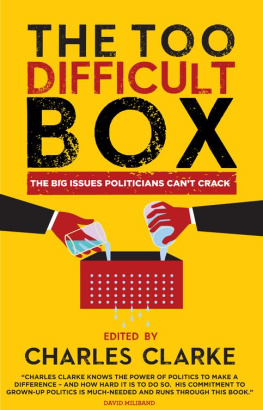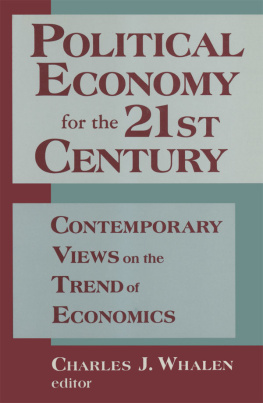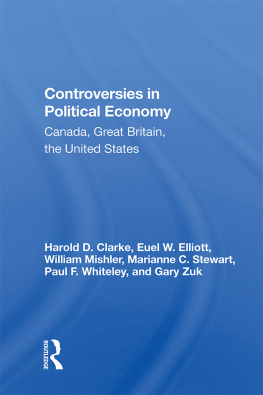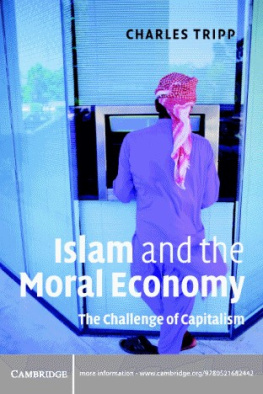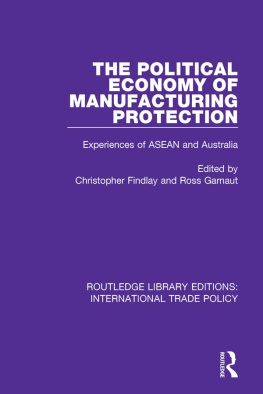INTRODUCTION
The following nine articles are "Speculations," by no means altogether recommendations. They are from Political Economy, i.e. they have nearly all of them been suggested by considering mere propositions of Political Economy. Some of them are old, or given me by friends: some are, I believe, new: these many persons will set aside as unpractical or impracticable, as that is the approved word by which people indicate that an idea is new to them. The topics of the nine articles have been largely taken from those now under political discussion, but they can hardly be called ephemeral; and, though they do not form a treatise, they will hardly be called disconnected. As they are speculations, no trouble has been taken to work out suggestions in detail, or give the "shillings and pence" correctly.
CONTENTS
SPECULATIONS FROM POLITICAL ECONOMY
1. EFFICIENCY OF LABOUR.
Political economists have not overlooked efficiency of labour: they have underestimated its importance in the opinion of Edward Wilson, who has supplied me with the examples and arguments that follow and who has verbally given me leave to publish as much as I like.
The English workman, especially in a country town of moderate size, regards capital as unlimited, employment ("work") as limited. A wall six feet high is to be built along the length of a certain garden: if one bricklayer is employed, the fewer bricks he lays daily the more days' employment he will get; if several bricklayers are employed, the fewer bricks one lays daily the more employment is left for the others. It thus appears that the more inefficient the labourer is, the better for himself, his fellow-handicraftsmen, and for "labour" in general: the more money is drawn from the capitalist.
There is a grain of truth in this view with respect to petty unavoidable repairs in a narrow locality: but the capital spent on such is as a drop in the ocean compared with that embarked in a single large work. Consider the case of the London Building Trade, as practised in the suburbs on all sides of London. The London bricklayers thoroughly believe that it is their interest to be inefficient: it is said that they have a rule that no bricklayer shall ever lay a brick with the right hand; they have also a rule against "chasing," i.e. that no bricklayer, whatever his skill, shall lay more than a certain number of bricks a day; they believe that if the bricklayer laid a larger number of bricks he would get no more pay for a harder day's work, while the "work" would afford employment to a smaller number of labourers. Look however a little further. The speculative builders round London compete against each other, so that they carry on their trade on ordinary trade profits. Such a builder is building streets, house after house, each house costing him 800, and selling for 1000 say; and this, after paying his interest at the bank, etc., pays him about 10 to 15 per cent on his own capital embarked. Suppose now that the bricklayers increase their inefficiency either by a trade rule or by a combination to shorten the hours of labour. The cost of each house is increased 50 to him: nothing in the new bricklaying rules or rates affects the purchasers; the builder estimates that his profits will fall to 5 to 8 per cent on his capital. He does not care to pursue so risky a business at this rate of profit; he determines to contract operations. When he goes to his bank, a branch of one of the gigantic London joint-stock banks, at the end of the quarter, the manager of the branch comes forward as usual ready to continue the bank advances; but the builder says simply, "The building trade is not so good as it was," and declines. The increased cost of bricklaying has affected all other speculative builders in much the same way; the consequence is that "gold" accumulates in the branch banks. The secretaries and managers of the great joint-stock banks do not let their capital idly accumulate; they buy New Zealand 6 per cents, or transfer to Frankfort or New York the capital that, but for the rise in cost of bricklaying, would have gone to the London bricklayers.
In this case it is easy to see that the quantity of work to be done is not limited. Should the cost of building diminish but a little, the rate of profit of the builders on their own capital (in many cases not one-tenth of the capital they employ) will run up to 20 or 30 per cent, or even more; and at even a 20 per cent profit the bricklayers would find that a perfect rage for building would set in. Every speculative builder in the trade would strain his credit to the utmost, and take up every 100 from his bank that he could induce the bank manager to let him have.
A second illustration. Forty years ago, on our farm in the south of England, two men with flails used to begin threshing wheat in the long barn about 1st November, and used to thresh till 1st April. They got eight shillings a week with us, but in adjoining counties seven shillings (and even six) were winter wages. Now the steam threshing-machine will empty that long barn in two short days' work. It takes half a dozen men to do the work, and they get about fifteen shillings a week, though their labour is much shorter and easier than that of the old flail men. At the same time our farmers now are much poorer men than they were forty years ago: they have less capital, they have made for many years past a low rate of profit, and they are frequently themselves complaining that they cannot afford to pay their labourers well, and inferring that they should get Protection back again in some shape or other. The labourers on their part imagine very generally that their increased wages for less work are due to Mr. Arch and agitation; that the employers of labour will never pay more than is wrested from them (this is in large measure true); and that employers must pay whatever agitators are strong enough to demand (this is wholly erroneous).
In this case it is evident on the surface that the labourers who thresh with the steam-thresher are more efficient than the flail-men: their labour is worth the half-a-crown a day to the employer, and therefore the employer, however poor, can afford to pay it as he receives it back with a profit. On the other hand, if the flail-men were raised from the dead, no farmer would now pay them even eight shillings a week for threshing; their labour would not be worth even that.
One illustration more. Thirty years ago there were few more wretched trades than the shoemakers of Northampton. Wages were low, the labour was severe, the social condition of the workmen was necessarily low also. The sewing-machine, with some special adaptations to make it sew leather, increased about sixfold the bootmaking power of a workman. It is needless to say that the Northampton shoemakers met the introduction of this machine with the fiercest opposition: they said five-sixths of their number must be thrown out of employment. The struggle was won by the machine (as in other cases); shoemakers' wages have ruled 50 to 100 per cent higher ever since, at the same time that the shoemaking population has largely increased; and the social comforts and character of the workpeople have improved vastly too. This is an example that has always puzzled the workmen themselves; but it requires no explanation after what has been said about the efficiency of labour. The puzzle to the shoemakers is what becomes of the additional boots and shoes made. They do not reflect that, even of a necessary of life, only a certain quantity is used at a certain price. Nothing is more necessary in London, especially in winter, than coal; but, when coal some years ago went up to 40s. a ton in London, it was marvellous how people in all ranks managed to reduce their consumption of coal. Much more in the case of boots, which will bear the cost of export to remote countries, did the demand increase as the price fell. A fall of 10 per cent only in the price of boots would cause every wholesale boot exporter to export on the largest scale. No doubt the invention of a self-acting machine which should turn out 1000 pairs of boots an hour at a nominal cost of workmanship per pair would reduce the shoemakers of Northampton to idleness and starvation. But in practice it has rarely happened that any machine has been introduced in any trade that has thus completely choked the increased demand. It has happened often that the workmen who could only work the old way, and were not able to take up the new machine, have been reduced to starvation. Even then, after this generation has passed away, the new machine-workers have been better off than their predecessors.



